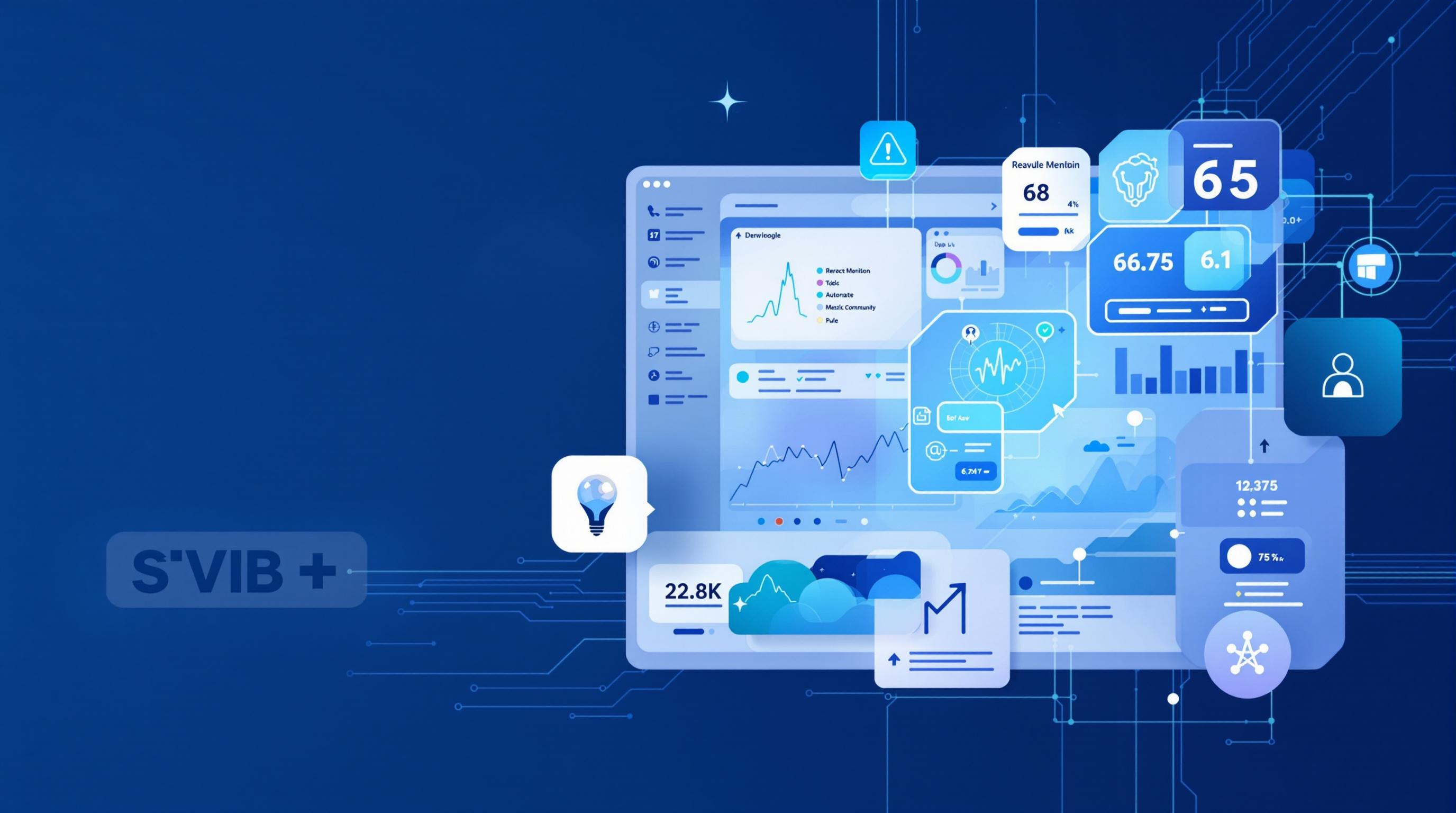Related Articles
- 7 Game-Changing Medical Compliance Apps From the Last 5 Years Redefining User Experience and Data Security
- Unveiling the Impact of Human Factors on Medical Software Adherence in Complex Clinical Settings
- Exploring Ethical Dilemmas in Medical Imaging Software: Patient Privacy and Data Ownership in the Digital Age
- Unveiling the Quiet Revolution: How Medical Imaging Software is Shaping Rare Disease Research and Diagnosis
- 5 Cutting-Edge Medication Management Apps Released Since 2019 Ranked for Accuracy and User Trust
- Unlocking the Forgotten: How Mobile Apps Are Shaping Rare Disease Diagnosis and Patient Advocacy Networks
Top 6 Breakthrough AI-Enabled Medical Platforms Launched Since 2019 Changing Clinical Operations and Revenue Cycles
Top 6 Breakthrough AI-Enabled Medical Platforms Launched Since 2019 Changing Clinical Operations and Revenue Cycles
Top 6 Breakthrough AI-Enabled Medical Platforms Launched Since 2019 Changing Clinical Operations and Revenue Cycles
The intersection of artificial intelligence and healthcare has led to transformative changes in clinical operations and revenue cycle management since 2019. AI-enabled platforms now streamline workflows, enhance diagnostic accuracy, and optimize financial processes in medical institutions globally. This article explores six standout AI-enabled platforms that have made significant impacts on healthcare delivery and administration.
These platforms not only improve patient outcomes through smarter analytics and automation but also tackle longstanding inefficiencies in billing, coding, and revenue capture. By leveraging vast datasets and machine learning algorithms, they reduce human error and accelerate both clinical and financial workflows.
As hospitals and clinics continue to adopt AI technologies, understanding these pioneering tools can help healthcare professionals and administrators stay ahead in a rapidly evolving landscape.
1. Olive AI
Launched with a focus on automating repetitive and complex administrative tasks, Olive AI has revolutionized clinical operations and revenue cycle management. The platform uses AI-driven robotic process automation (RPA) to handle tasks such as insurance eligibility verification, prior authorization requests, and claims management.
Olive’s technology significantly reduces delays and denials in billing processes by automating workflows that traditionally required manual intervention. This results in faster reimbursements and improved cash flow for healthcare providers. Their AI also integrates smoothly with existing EHR and ERP systems, minimizing disruption during implementation.
According to a 2021 report by Becker’s Hospital Review, Olive AI has been instrumental in helping healthcare organizations reduce administrative costs by up to 30% through automation (Becker’s Hospital Review, 2021).
2. Notable Health
Notable Health launched an AI-powered platform designed to streamline patient clinical documentation and billing workflows. Utilizing natural language processing (NLP), the platform automates the capture of clinical notes and converts them into accurate billing codes in real time.
This reduces the burden on clinicians who often spend excessive time on paperwork, allowing more focus on patient care. By automating coding and clinical documentation, Notable Health enhances documentation quality and speeds up revenue recognition for healthcare providers.
The platform’s ability to integrate with multiple EHR systems and adapt to various specialties has contributed to rapid adoption. A study published in the Journal of Medical Systems (2022) reported gains in coding accuracy and significant reductions in claim denials when using AI-enabled documentation tools like Notable Health’s (Journal of Medical Systems, 2022).
3. Zebra Medical Vision
Zebra Medical Vision applies AI in the radiology domain, transforming diagnostic imaging analysis and clinical workflows. Their platform employs deep learning algorithms to automatically detect a wide range of medical conditions from imaging scans, such as X-rays and CTs.
This capability accelerates diagnosis, reduces the workload of radiologists, and helps clinical teams make more informed treatment decisions. From a revenue cycle perspective, Zebra Medical Vision’s analytics can be used to streamline billing for diagnostic procedures by linking findings to appropriate billing codes.
The platform has received FDA clearance and continues to expand its offerings. As reported by Forbes in 2020, Zebra Medical Vision contributes to faster turnaround times and improved operational efficiency in radiology departments (Forbes, 2020).
4. Waystar
Waystar is an AI-driven revenue cycle management platform designed to optimize claims processing, denials management, and patient collections. By harnessing machine learning, Waystar forecasts payment delays, identifies patterns in denials, and automates resolution workflows.
The platform improves revenue capture and reduces days in accounts receivable, which is critical for hospital financial health. Its analytics also provide actionable insights to revenue cycle teams to fine-tune their processes and policies over time.
A case study from Waystar showed a 15% increase in clean claim rates and a 20% reduction in denials within six months of AI implementation, demonstrating meaningful impact on revenue operations (Waystar Case Study, 2021).
5. Epic Systems’ Cognitive Computing Tools
Epic Systems, a dominant player in electronic health record technology, has introduced several AI-enabled tools to enhance clinical operations and revenue cycles. Their cognitive computing capabilities include automated clinical decision support, predictive analytics, and coding assistance.
These tools help healthcare providers improve documentation quality, reduce errors, and optimize billing accuracy. By predicting patient risks and suggesting interventions, the platform also supports proactive care management which can reduce costly hospital readmissions.
According to Epic’s 2022 Innovation Report, their AI tools led to measurable improvements in clinician productivity and a reduction in claim denials by up to 18% across several health systems using their platform (Epic Innovation Report, 2022).
6. Innovaccer Health Cloud
Innovaccer’s Health Cloud leverages AI to unify disparate healthcare data into a comprehensive platform that supports clinical and financial workflows. The platform uses advanced data analytics to provide insights into patient populations, improve care coordination, and identify revenue opportunities.
By enabling real-time data access and predictive analytics, Innovaccer helps organizations optimize resource allocation and reduce waste within clinical operations. From a revenue cycle perspective, the AI-driven insights aid in reducing billing errors and enhancing payer negotiations.
A recent HIMSS Analytics report (2023) highlighted Innovaccer’s contributions to improving operational efficiency and increasing revenue collections for large multi-specialty groups by integrating AI-powered data insights across the care continuum (HIMSS Analytics, 2023).
Conclusion
The six AI-enabled medical platforms profiled here represent just a snapshot of the innovative solutions reshaping clinical operations and revenue cycle management since 2019. By automating administrative tasks, enhancing clinical documentation, improving diagnostic accuracy, and optimizing financial workflows, these technologies deliver tangible benefits for health systems.
As healthcare providers continue to face pressure to improve efficiency and financial performance, integrating AI into everyday operations will likely become the standard rather than the exception. Staying informed about these platforms helps healthcare leaders make strategic choices that drive sustainable growth.
The ongoing evolution of AI in healthcare signals a promising future where data-driven automation supports clinicians and administrators alike, ultimately improving patient care and financial outcomes.




